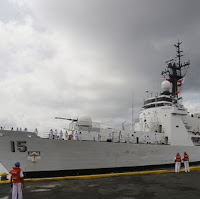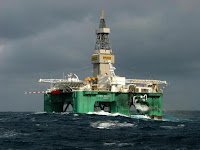On Thursday 21 June, in a new show of its resolve over the
South China Sea dispute Beijing warned Vietnam for passing a law that
claims sovereignty over the oil-rich Paracel and Spratly
Islands, saying they are the ''indisputable'' territory of China.
China's Foreign Ministry in Beijing called on Vietnam's
ambassador Nguyen Van Tho to oppose the new law. A ministry
statement said: “'Vietnam's Maritime Law, declaring sovereignty and
jurisdiction over the Paracel and Spratly Islands, is a serious
violation of China's territorial sovereignty…China expresses its
resolute and vehement opposition.''
Vietnam's National Assembly approved the law on Thursday,
stipulating that all foreign naval ships passing through the waters are
required to notify Vietnamese authorities. The dispute about
the law, which has been in the making for years, is yet another one of
China's attempts to tell Vietnam that the South China Sea is its
rightful domain.
China's statement comes two weeks ahead a meeting of foreign
ministers of the Association of Southeast Asian Nations in Phnom Penh,
Cambodia, which will be attended by US Secretary of State
Hillary Clinton. The South China Sea dispute is expected to be
high on the agenda.
To fortify its claims, China has also raised the level of
governance on three island groups in the sea: the Spratlys, the
Paracels and Macclesfield Bank. The Chinese State Council issued a
statement placing the three groups of islands and their
surrounding waters under the city of Sansha as a prefectural-level
administration rather than a lower county-level administration.
Sources: Upstream, Bloomberg, The New York Times



















